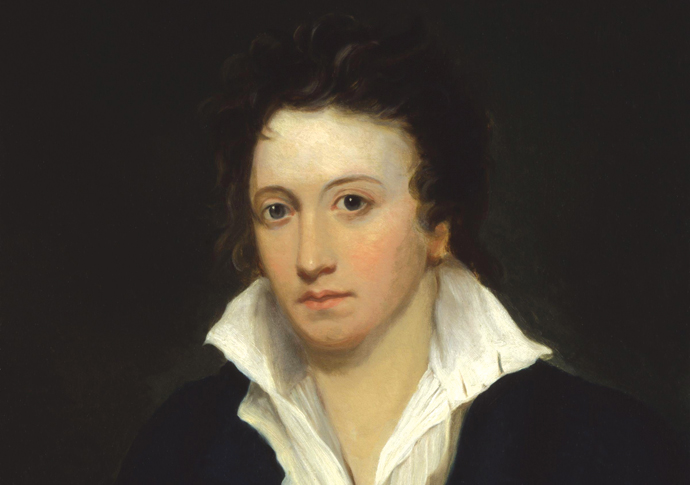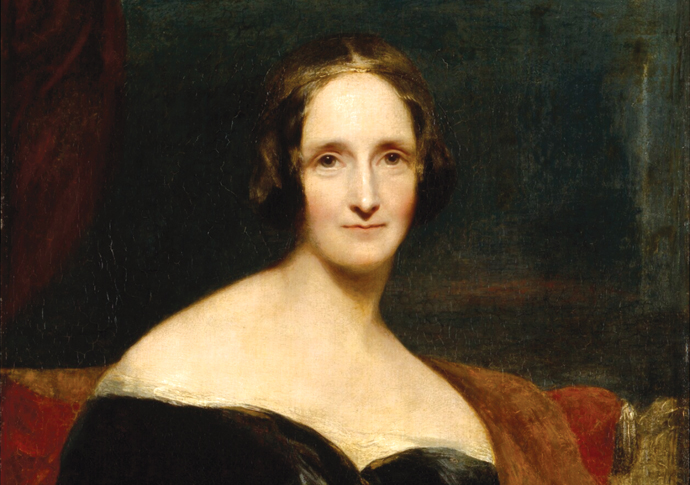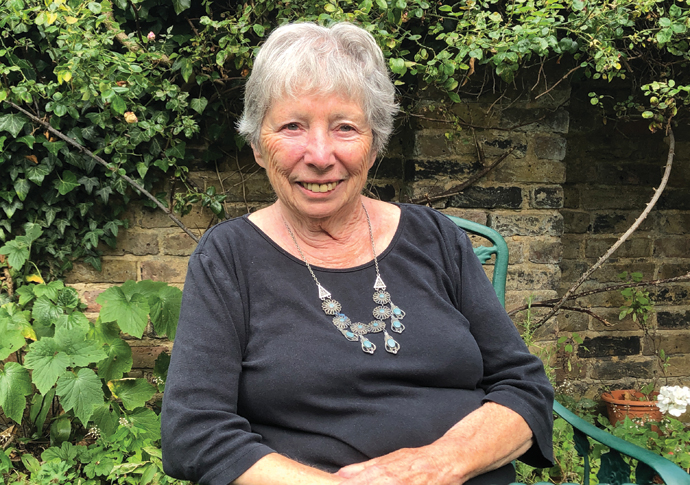Soul mates
In a week that marks the bicentenary of the death of Percy Bysshe Shelley, Dan Carrier reports on a few hidden faint lines that shine a new light on the great Romantic poet
Thursday, 7th July 2022 — By Dan Carrier

Percy Bysshe Shelley by Alfred Clint
THE lines were faint. Scratched out in pencil, committed to paper nearly 200 years ago – when the poet Percy Bysshe Shelley wrote them, they were a direct expression of the deep and terrible anguish he felt.
Researcher Dr Judith Chernaik was sat in the Bodleian Library, Oxford, a post-grad from New York writing a book on Shelley’s lyrics who had been given the poet’s original notebooks to look through.
And as she read a poem written after the death of Percy and Mary Shelley’s two children, Dr Chernaik spotted some lines that had been previously overlooked.
This week marks the bi-centenary of the Romantic radical’s death and the occasion is being celebrated by a new series on tube trains as part of the Poems on the Underground series. In Hampstead’s Keats House, Shelley’s work was featured on Wednesday night with a reading and a discussion of his politics.
Dr Chernaik – who founded the Poems on the Underground series and lives in Gospel Oak – recalled how she found the unseen lines as she researched Shelley as a student 50 years ago.
“I wanted to look up lines I had written about, so the notebooks were brought to my desk,” she says. “It was extraordinary. I could not believe it – here I was holding original books in my hands. He doodled. He drew trees and birds on the page. He linked together rhyming words at the end of sentences and then filled out the gaps. It made me feel very close to him.”
The incomplete poem Dr Chernaik noticed was written in Italy. He and his wife Mary – the author of Frankenstein – had lost two children and their deaths had caused deep grief. Mary had lapsed into an unshakeable depression and Shelley felt distanced from her, so he poured out his feelings in bursts of poetry.

Mary Wollstonecraft Shelley
“My dearest M. wherefore hast thou gone,” he wrote,
“And left me in this dreary world alone.
Thy form is here indeed, a lovely…
But thou art fled, gone down the dreary road
Which leads to Sorrow’s most obscure abode
Thou sittest on the hearth of pale despair
It where For thine own sake I cannot follow thee.”
Beneath these lines more appeared, seemingly overlooked.
“I could not believe it,” recalls Dr Chernaik.
“I looked carefully and I saw that he had written another line in faint pencil, so that Mary missed it when she transcribed the work:
“Do thou return for mine,” the poem ends.
“I felt very emotional discovering this,” adds Dr Chernaik. “I kept thinking that if Mary had only seen the line, she would have realised that Shelley shared her anguish about the deaths of their two young children, and that he was desperate for her to return to him.”
As we mark Shelley’s life, the impact and acknowledgement of the Romantics should be remembered, adds Dr Chernaik.
“Anthologies put together in Victorian times did the Romantics a great disservice,” she believes. “If you read the beautiful lyrics you think it is about love and nature. But Shelley and Keats saw people suffering.
“They felt as poets they could help their society. Keats saw poetry as something that could ease suffering and so did Shelley.”
His first work, Queen Mab, became known as The Chartists Bible and was later taken up by The Fabians – groups whose opinions mimicked Shelley’s egalitarian outlook.
Shelley dismissed his privileged background – educated at Eton and Oxford, set to inherited a title – he looked like he would never wish for much. His radicalism, rejection of religion and disdain for titles and wealth was influenced by the French and American Revolutions. He viciously attacked injustice, and his poem Ode to the West Wind, is about the triumph of good over evil.

Judith Chernaik
“For Shelley, the poet is a prophet, and his prophecy foretells revolution, the inevitable destruction of tyranny, to be followed, inevitably, by rebirth, renewal, freedom – a new world in which man is ‘Equal, unclassed, tribeless and nationless,’” adds Dr Chernaik.
Shelley writes: “Be through my lips to unawakened Earth The trumpet of a prophecy! O Wind, If winter comes, can Spring be far behind?”
“The prophecy can be read in different ways – and has been taken in different ways by his readers – from Marx and Engels to Gandhi and Nelson Mandela,” adds Dr Chernaik.
“In his most explicitly political poem, Mask of Anarchy, he recommends non-violent protest carried to a completely unacceptable extreme – which seems inconsistent with his memorable cry to the British people: ‘Rise like Lions after slumber, In unvanquishable number; Shake your chains to earth like dew, Which in sleep had fallen on you …Ye are many, they are few.’ Yet in the Ode to the West Wind, he appears to prophecy that liberation, renewal and rebirth can only come when oppression is destroyed by force. At other times he insists that the most powerful oppression is mental, the continued belief of the oppressed in the false dogmas which sustain their oppressors.”
Shelley and his fellow Romantics have had their political power hidden by subsequent generations of establishment figures who seek to dilute the fact that at the heart of the Romantic philosophy was an idea that there is an intrinsic beauty in the human spirit and that this should be recognised and nurtured in everyone.
“I see Shelley as far more realistic than is usually recognised,” concludes Dr Chernaik. “He had a very good sense of his times. For Shelley the key events were Peterloo – the stabbing of peaceful protesters by the armed militia – and the French Revolution, with its aftermath – the Terror, the imperial dreams of Napoleon, his defeat at Waterloo and the restoration of the old order.
“There are obvious parallels with our times.”